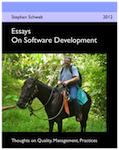Comment on Cultural Sensitivity and the backlash of having none
While reading blog comments on Boquete Guide one got me thinking. When you live as expat in another country you might become an invasive species destroying the local fabric of society and the local economy due to the fact that your economic power stems from the outside and was not earned within the local economy.
These are a few lines from the comment that made me think twice:
Anne on Boquete Guide in Comment on Cultural Sensitivity and the backlash of having none:
Here goes an idea for you all…do not become an invasive species instead, coexist with the locals and teach them the best of the place that you come from. I know you talk to your rich Panamanian friends and they advise you to pay low wages—because if you don’t it affects their labor cost. Well if you know enough about Latin America then you know the huge difference between the rich and the poor…
It goes something like: the rich eats a $50 per person dinner while the poor has to pay for: food, housing, education and all their basic needs with a $50 a week salary…and that is very un-American,
wouldn`t you agree.
What Anne says about the huge difference between the Rich and the Poor in Latin America is definetely true. And this very difference was probably one of the reasons why the poor in Venezuela elected Hugo Chavez as their president. The other reason might very well be the fact that middle class and upper class people frequently let the poorer people feel who commands, which is sad and in my opinion not very forward thinking, as over time it may turn against them.
But you can't change a society, an economy over night or by essentially donating to the poor paying them higher wages than the going rate. If lots of people do that, then the result will be higher prices for everything in that particular region and the poor stay poor albeit on a slightly higher level - the numbers will have grown, but not the value.
Instead the key in my opinion is education. Educate the children of the poor so they won't have to suffer, can take better jobs than their parents could and you will be en route to a raising economy with sane growth. This is substantial and not an inflated bubble.
I'd like to show a simple example. In Panama - and probably the rest of Latin America as well - a dish washer is a rare household item. While in Europe and North America you can almost expect one in every household's kitchen. The reason is that it's simply cheaper and more flexible to have a human do the dishes instead of using a machine that needs to be purchased for the equivalent of a local salary and needs maintenance. The human is so cheap and flexible that you would feel stupid to buy all the usual machines for your kitchen. And think about the effect of not employing someone. From what will this person live instead? You may not pay much - not much for you -, but it's something these people usually live on.
Now imagine you equip your house with all the machines and other stuff you are used to. Do the same with your garden equipment. And then you go ahead and employ people who have been raised in wooden shacks, have no idea about how to operate a washing machine to wash fine clothes, a dish washer, how to activate the cleaning mode of modern high-tech ovens. And don't forget that these people usually don't know Teflon coated pans and pots. The same goes for the gardener who knows a bit about plants, but doesn't have a true understanding of whats going on in the soil and how to combine plants to combat bugs without using pesticides. Would you still be willing to pay significantly more than the local going rate?
The amount of money someone gets paid depends directly on the value he is able to provide. Poorly educated people can't provide high value. If you would have asked me about some of these things a decade ago, I would probably have shared Anne's opinion in it's entirety. Back then I believed that all over the world people were more or less on a similar intellectual level and trade barriers were the biggest problem. Now with all the side effects of globalization more and more it becomes visible what the true problem is and money is not the number one concern. It's education and the will of becoming an educated person.
Last weekend we did a road trip to the Los Santos province and were surprised by the fact that in the tiny town of Villa de Los Santos at least 4 Universities are present. Those are the same that you can find in the capital. We talked to a professor of computer science and I came back impressed by his knowledge and what he teaches his students. None of his students is from a wealthy family. Instead they are daughters and sons of poor campesinos who can't afford a computer at home. Instead they spend every free minute using the equipment on the University's premises. Now let's think ahead and imagine what these guy's impact on the local economy will be when they start working, form a new family, buy a house and demand good education for their children.
| Previous | 12 Jul 2007 | Next |
This article has been posted to social media sites. There might be comments. Just follow the links:








